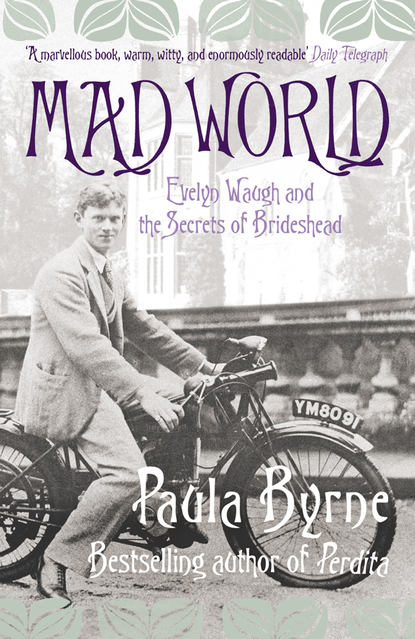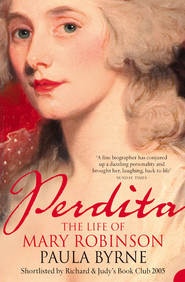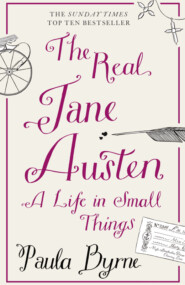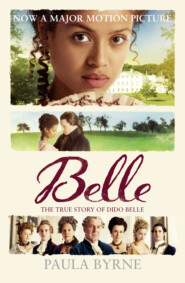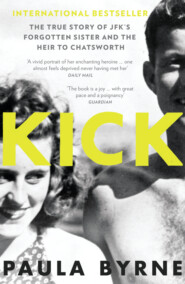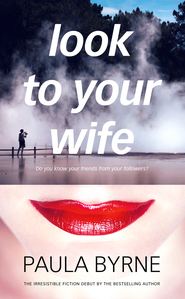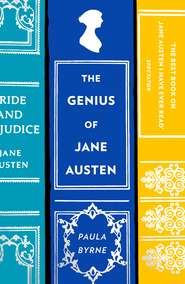По всем вопросам обращайтесь на: info@litportal.ru
(©) 2003-2024.
✖
Mad World: Evelyn Waugh and the Secrets of Brideshead
Настройки чтения
Размер шрифта
Высота строк
Поля
Hugh Lygon’s Oxford career was not devoted to academic study. An evening in Magdalen, recorded in detail by Terence Greenidge in his book Degenerate Oxford?, may serve as the epitome of the Lygon brothers’ life among the dreaming spires.
Elmley was something of a fish out of water. He had matriculated at Magdalen, a college renowned for aristocratic breeding and sporting endeavour. But he disliked rowing intensely and thought that hunting was cruel – a belief translated by Waugh into a trait of Sebastian Flyte’s older brother ‘Bridey’, who refuses to ride to hounds. It was this unorthodox streak in Elmley’s character that took him among the Hypocrites, where Hugh was happy to join him. Elmley was clearly recognisable as Hugh’s brother, with similar but not such classical features. Even as an undergraduate he had a tendency towards the portly. Evelyn described him as ‘a solid, tolerant, highly respectable’ Magdalen man. But there is a dig in his observation that Elmley was ‘voluntarily rusticating with the yeomanry’.
One evening, in a spirit of mischief, Elmley invited a group of his bohemian Hypocrite friends to a Magdalen ‘wine’ – a college entertainment evening dominated by the Athletes. Harold Acton turned up in a high-necked scarlet jumper, David Plunket Greene in flowing trousers and a broad-brimmed hat, Terence Greenidge in a black sports coat with Russian-style fur-embroidered edges. Robert Byron – who shared Evelyn’s love for all things Victorian – dressed as Prince Albert, and Hugh was as Hugh always was, a representative, in Greenidge’s words, of ‘the slightly effeminate, elegant type of jeunesse dorée’. No sooner had they arrived than a Magdalen undergrad pointed at Terence’s fur collar and said ‘Jesus Christ, what’s that?’
In hall, they drank fine port and joined in with some enthusiastic singing. But Harold insisted on leaning over the chair in front of him and loudly addressing Hugh as ‘darling’. To which an Athlete countered: ‘None of your tricks here!’
There was then a break, during which they all went down into the Oxford night for ‘a breather’. Six members of the rowing crew spotted Elmley and Plunket Greene in the quad. ‘Here are two of those bloody Aesthetes,’ they said; ‘Let’s chuck them in the river.’ But Elmley was a burly six-footer and Plunket Greene even taller. The rowers had second thoughts and retreated, saying: ‘Let’s have another drink first, and chuck them in the river afterwards.’ At the end of the evening, Elmley had to hurry his friends out of the college in order to save them from a large group of now very drunk Athletes. Hugh just drifted away. He was, according to Greenidge, more secure than the others ‘because the jeunesse dorée type is not considered pre-eminently Aesthetic and Athletes are apt to respect a man with an Honourable in front of his name’.
Hugh’s life at Oxford developed into one of idleness alleviated by pranks. On one occasion he and a group of friends staged a mock duel, complete with pistols and seconds, having previously leaked the news of it to the editor of the Oxford Times in an effort to provide a lively story to increase the paper’s flagging circulation. Stephen McKenna, a gentleman of leisure who wrote popular fiction about aristocratic life, used the incident as the basis for a novel, published in 1925, called An Affair of Honour. He dedicated it ‘To Hugh Lygon, to whom I am indebted for the seed of truth from which this tree of fantasy has grown’.
‘The record of my life there,’ wrote Waugh of his Oxford years, ‘is essentially a catalogue of friendships.’ In his view, what undergraduates learned they learned from one another, not from the dons: ‘the lessons were in no curriculum of scholarship or morals’. He also admitted that ‘Drinking had a large part in it.’
Evelyn was a noisy drunk. Once when asked why he was so aggressively loud, he responded: ‘I have to make a noise because I am so poor.’ This reply delighted his new friends: it had the right sort of panache. Shared drunkenness became a bond. Beer was cheap at the Hypocrites (8 pence a pint), enabling Evelyn to indulge himself to excess. The sight of a drunken Evelyn became familiar: ‘very pink in the cheeks, small, witty and fierce, quite alarming, but fascinating’. He lit up the gloomy room like ‘a bright spark from the fire’, though once he got into trouble for smashing up the furniture with that cudgel-like stick of his.
He was appointed Hypocrites club secretary at his very first meeting. He performed no duties in the role. Alfred Duggan, who was frequently rendered speechless with drink, began to invite Evelyn to luncheon parties. At last the boy from suburban Golders Green and minor public school Lancing was moving among the wealthy, the aristocratic and the debauched. Duggan instructed his scout always to lay an extra place at the luncheon table just in case he had invited someone when he was drunk. The place was always occupied. There were often thirty or forty guests and the parties went on for most of the day. In winter, they drank mulled claret followed by port until long after dusk. Waugh learnt how to finger long-stemmed glasses, sniff the wine and hold it up to the light that slanted in through the narrow Gothic windows. Often Duggan had to be put to bed by his friends.
The Hypocrites’ Club found a friend in John Fothergill, proprietor of an old inn called the Spreadeagle at Thame, a town about fifteen miles from Oxford. This was a location where club members could indulge in gaudy nights far from the patrols of the ‘bulldogs’ (the university’s bowler-hatted private police force). Fothergill was an eccentric former art dealer and historian who was very sympathetic to Harold Acton and his set, though less kind to more run-of-the-mill guests. He once charged a party extra money for being ugly. He seemed especially partial to the antics of the Hypocrites; their aristocratic connections no doubt added to their allure.
Fothergill wanted to make the Spreadeagle ‘an Eton or Stowe of public houses’. He had a reputation for being an incorrigible snob who bullied his working-class clientele while being ‘all over’ the aristocrats. But in fact it was appearance, intelligence and style that mattered more to him. His motto was ‘not only to have proper and properly cooked food but to have only either intelligent, beautiful or well-bred people to eat it’. The inn was furnished like a home rather than a hotel, filled with Georgian and early Victorian furniture and fine china. As a gentleman innkeeper, he was exactly the sort of man Evelyn admired: rude to those he despised, determined to maintain the standards of a better age. On the publication of his first novel, Decline and Fall, Waugh sent a copy personally inscribed to ‘John Fothergill, Oxford’s only civilising influence’. Fothergill chained it up in the loo and said that it was ‘the best comedy in the English language’.
In 1924, Elmley held a twenty-first birthday party at the Spreadeagle for sixty young men, including all members of the Hypocrites’ Club. It doubled as a wake for the demise of the club, which had been closed down by the proctors after complaints by the neighbours about riotous behaviour and noise. They went down from Oxford in a fleet of hearses. Elmley, dressed in a purple velvet suit, provided the champagne. Harold Acton made a speech about the beauties of the male body; Evelyn got silently drunk; Robert Byron (wearing lace) passed out and the evening ended in dancing, persimmons thrown against the wall, and couples (all male) having sex in the hearse. In his memoirs, Fothergill noted the impressive amount of champagne that was consumed. Among his abiding memories were Terence Greenidge looking ‘quite mad’ and after-dinner dancing that reminded him of ‘wild goats and animals leaping in the air’.
Evelyn enjoyed heavy drinking because it made him uninhibited. He later acknowledged to his first biographer, Christopher Sykes, that he experienced an acute homosexual phase at Oxford. For the short time it lasted, his homosexual activity ‘was unrestrained, emotionally and physically’. This was not at all unusual for male students at Oxford. There were few women at the university (undergraduettes were kept in purdah with the exception of eight weeks) and other heterosexual relationships were frowned upon because they usually meant consorting with the undesirables of the town. Some of Evelyn’s friends went up to London for sexual experiences, coming back on the last train, which was known as the ‘fornicator’. But in the main, homosexual encounters were more common.
Homosexuality was considered by many to be a passing phase, which young men would grow out of once they had left Oxford and begun to meet young women. In those days it was chic to be ‘queer’ in the same way that it was chic to have a taste for atonal music and Cubist painting. Even old Arthur Waugh acknowledged as much: ‘Alec called on me the other day with a new friend of his, a sodomite, but Alec tells me it is the coming thing.’
‘Everyone in Oxford was homosexual at that time,’ said John Betjeman, who was there. Though homosexuality was illegal, many senior members of the university, most notably the flamboyant don Maurice Bowra, actively encouraged it, sometimes acting as go-between in setting up assignations for their pupils. Tom Driberg enjoyed soixante-neuf with a young don in the rooms where more cerebral tutorials were supposed to take place. The Hypocrites’ Club was the epicentre of what would now be called the university’s gay scene. According to Sykes, who knew Waugh extremely well, Evelyn was never shocked by homosexuality and remained very interested in the subject. He was, after all, ‘interested in all things which shed light on human character’. But later in life he would worry about his son discovering his past indiscretions.
In the spring of 1924, Evelyn informed his old school friend, Dudley Carew, that his life had become ‘quite incredibly depraved morally’. Drunkenness at the Hypocrites was part of the story, but hardly sufficient to qualify as incredible depravity. Something else was being hinted at. Tom Driberg, dancing with a fellow member, saw a drunken Evelyn rolling on the sofa with another boy, ‘with (as one of them later said) their tongues licking each others’ tonsils’. Anthony Powell’s first encounter with Evelyn was a sighting of him at the Hypocrites sitting on the knee of another member, Christopher Hollis. A club guest, Isaiah Berlin, also saw him on a settee kissing a friend. Evelyn later teased Christopher Sykes for not having had a homosexual phase, saying that he had missed out on something special.
But it was not just sexual experimentation. There were genuine love affairs. When the staunchly heterosexual Henry Yorke read Brideshead Revisited, he told Evelyn that it made him regret not falling in love at Oxford himself: ‘I see now what I have missed.’ What he missed was what Waugh experienced: real passion. Evelyn’s sexual abstinence at school seemed to make his Oxford love affairs even more intense.
Though Evelyn relished the companionship of eccentric and slightly crazed friends like Terence Greenidge and Harold Acton, romantically he was drawn to fragile, beautiful boys. Before being seduced by the Hypocrites, he had become intimate with a shy and scholarly left-wing Wykehamist from Balliol called Richard Pares. Evelyn described him as ‘abnormally clever’. In a later letter to Nancy Mitford, he also described Pares as ‘my first homosexual love’.
Pares was pale skinned, with a mop of fair hair and large blue eyes that somehow seemed blank. Their affair began in the summer of 1922. Evelyn later recalled: ‘I loved him dearly, but an excess of wine nauseated him and this made an insurmountable barrier between us. When I felt most intimate, he felt queasy.’ In other words, Waugh needed to be very drunk to release his strongest emotions, whereas Pares could not hold his drink. Nevertheless the young men spent two intense terms together. They only drifted apart when Waugh developed his ‘indiscriminate bonhomie’ among the Hypocrites. Being drunk was becoming his greatest ‘aesthetic pleasure’, whereas Pares was more interested in his research on the West Indian sugar trade. He was duly rescued from Bohemia by a homosexual don called Urquhart (known as ‘Sligger’), Dean of Balliol, who encouraged him to become an academic. He took a first and was elected to a fellowship of All Souls. Evelyn always remembered him with great affection and late in life Pares, happily married and respectable, remembered the affair as one of the most passionate and intense of his life.
Christopher Hollis, on whose knee Anthony Powell had first spotted Evelyn at the Hypocrites, wrote a memoir of Oxford in the Twenties, in which he said that Waugh had two homosexual lovers, first Richard Pares and then Alastair Graham. In A Little Learning, Waugh records that Richard Pares’ successor as what he called ‘the friend of my heart’ was a boy that ‘I will call Hamish Lennox’. ‘Hamish’ is described as ‘no scholar’: he ‘soon went down to take a course in architecture in London; but he continued to haunt Oxford and for two or three years we were inseparable or, if separated, in almost daily communication, until like so many of my generation, he heard the call of the Levant and went to live abroad’. ‘Hamish,’ says Waugh, ‘had no repugnance to the bottle and we drank deep together. At times he was as gay as any Hypocrite, but there were always hints of the spirit that in later years has made him a recluse.’ This account precisely fits Alastair Graham and Waugh’s relationship with him.
The two boys drank deep together of both alcohol and love. In one of his letters Alastair enclosed a naked photo of himself, leaning against a rock face, with arms outstretched, buttocks in full view, along with a description of the best way to drink fine wine: ‘You must take a peach and peel it, and put it in a finger bowl, and pour the Burgundy over it. The flavour is exquisite.’ The letter ended: ‘With love from Alastair, and his poor dead heart.’
Alastair came from the Scottish borders. His father was dead, his mother ‘high-tempered, possessive, jolly and erratic’. A southern belle from Savannah, she was the model for the character of Lady Circumference in Decline and Fall. She had settled in Warwickshire for the sake of the hunting. She devoted herself to frenzied gardening, disingenuously claiming that she was keeping the place on solely for the sake of Alastair (who in reality was no huntsman).
Alastair invited Evelyn home. His mother’s residence in the village of Barford, between Stratford-upon-Avon and Warwick, gave Evelyn his first taste of country-house living. Though on nothing like the scale of Madresfield, Barford House is much the grandest building in the village. It still stands behind a high wall. Albeit more shabby genteel than aristocratic grand, it was still a world away from Underhill. There was a ballroom that had been built especially for Alastair’s coming-of-age party.
Alastair, like Hugh Lygon, was a dreamer. He loved lying in the garden looking at flowers, or searching the fields for edible fungi. He drove his mother mad. She befriended Evelyn in the hope that he would persuade her son to cut down on his drinking and start living a less indolent life. He did not oblige.
Though Alastair frequently visited Evelyn in Oxford, he was resident in London. So did Evelyn have another undergraduate lover? Most biographers follow Hollis in identifying only Pares and Graham, but according to the Oxford don A. L. Rowse, Evelyn had three lovers at Oxford. The third man was Hugh Lygon. Rowse was convinced that Evelyn was bisexual and that as a novelist he ‘made use of every little scrap of his experience – he wasted nothing’. He remembered a conversation with Lady Sibell, eldest of the three Lygon sisters, who knew Evelyn well. ‘He was in love with my brother,’ she recalled.
Evelyn’s three lovers were of a very similar type: pale and beautiful, with the aura of Rupert Brooke. Richard and Hugh were both blond. After Oxford he fell in love with women of the same ethereal beauty: Diana Mitford, Teresa Jungman, Diana Cooper, Laura Herbert.
Evelyn was drawn to Alastair and Hugh not only because of their delicate beauty and gentility, but also because they were hard-drinking and self-destructive. He liked their child-like qualities and their lack of intellectual fervour (he never fell in love with Harold Acton or Brian Howard, much as he admired their abilities). He definitely had a type: the objects of his desire were invariably richer and better-looking, though never funnier, than he was. They had a dreaminess about them and a fragility that he found irresistible. They brought out his protective instincts. Waugh was speaking equally of himself when he wrote in his biography of the theologian Ronald Knox that he was susceptible to good looks and drawn to those with an air of sadness, of ‘tristesse’. Hugh Lygon had exactly this quality. He drifted round Oxford like a lost boy, a Peter Pan who refused to grow up. Terence Greenidge remembered him carrying a teddy bear.
Greenidge, a fervent socialist, admired Hugh’s classical good looks and thought he had ‘charm and elegance’, but said that he was ‘rather empty’. But Evelyn found him full of humour. The same things made them laugh. He loved Hugh’s eccentricities and was impressed by his lack of snobbery.
Hugh, along with Robert Byron, Patrick Balfour and Brian Howard, was regarded as one of the most sexually active of the Hypocrites. Harold Acton wrote to Evelyn after the publication of A Little Learning to reprove him for singling out his homosexuality, whilst failing to mention ‘Robert’s, Patrick’s, Brian’s and Hugh’s promiscuities’. Evelyn himself called Hugh the ‘lascivious Mr Lygon’.
Tamara Abelson (later Talbot Rice) was an exotic White Russian exile, who knew Evelyn at Oxford where she was one of the rare under-graduettes. As far as she was concerned, ‘everyone knew that Evelyn and Hugh Lygon had an affair’. She reported that John Fothergill let Evelyn have rooms in the Spreadeagle at Thame at a special midweek rate so that he and Hugh could meet in private.
Not everyone approved of Evelyn’s translation to a new set. His brother Alec came to remonstrate about his dissipated lifestyle. But Evelyn was not going to give it up and go back to the loneliness that he had felt as a child. He had found a surrogate family and he had found glamour, wit and intelligence: the ‘congenial people’ for whom he had longed. No amount of lecturing from an older brother to whom he had never been particularly close was going to change anything. Among the Hypocrites he had found the love that he had been longing for all his life. He was happy.
But there was an element of bravado about his entry into the world of cigars, champagne and Charvet silk ties. In his heart he knew that he did not really belong there. Rather like one of his heroes, Toad of Toad Hall, he had a child-like quality that manifested itself in acute mood swings between hilarious gaiety and sullen gloom. He often felt that he was being treated as a specimen, even a freak. His friendships flared brightly and intensely, but sometimes burned themselves out. He was still the outsider looking in, glimpsing rather than actually passing through the low door in the wall that opened on an enclosed and enchanted garden.
Intimate as they were at Oxford, Hugh did not invite Evelyn to visit his ancestral home while they were still undergraduates. Nor was he invited to Lord Elmley’s lavish twenty-first birthday celebrations at Madresfield in August 1924. That was a high-society occasion, very different from the celebration of the same event at the Spreadeagle. Evelyn was never very close to Elmley, who had a more pronounced sense of his status than Hugh.
Evelyn took his final examinations in the summer of 1924, but since he had come up a term late, he was supposed to return to Oxford for a further term in the autumn, so as to fulfil the residence requirement necessary for him to receive his degree. He planned to share lodgings with Hugh Lygon in Merton Street. They were going to take an expensive little house next to the tennis courts. With no exams to worry about, it would be a term of ‘pure pleasure’ and ‘comparative seclusion’.
The plan was aborted with the news that Evelyn had obtained a third-class result. His scholarship was not renewed for the further term and his father did not think that a third was worth the cost of the extra term. Evelyn therefore left Oxford without completing his degree.
Of Evelyn’s three Oxford lovers, Hugh Lygon is the one about whom he was most reticent in A Little Learning. The name Lygon only appears fleetingly in the book. An aura of concealment hangs over that first naming of Hugh in the passage where Quiller-Couch’s line ‘Know you her secret none can utter?’ is quoted, together with the mysterious remark that it is not given to all Oxford’s sons ‘either to seek or find this secret, but it was very near the surface in 1922’. What was the secret none could utter? In the context of an aspiring writer and a beautiful young aristocrat, could it have been something reminiscent of Oscar Wilde and Lord Alfred Douglas? ‘I am the Love that dare not speak its name.’
Hugh Lygon’s name appears last in Evelyn’s list of his fellow Hypocrites: ‘Hugh Lygon, Elmley’s younger brother, always just missing the happiness he sought, without ambition, unhappy in love, a man of the greatest sweetness; and many others …’ The wistfulness and the drift into ellipses suggest that something is being left unsaid. Why was it, when Evelyn could be comparatively open about Richard Pares and Alastair Graham, that his love for Hugh dared not speak its name? We may find an answer when Hugh’s family story is known.
CHAPTER 4 The Scarlet Woman (#ulink_bd13536d-861b-5a0c-b4f8-68657e5a22c0)
After Evelyn’s humiliating departure from Oxford, he returned home to Underhill. For a few happy weeks, he hung out with Alastair. They wandered around greater London like Parisian flâneurs. But then Alastair departed for Kenya, leaving Evelyn with nothing to look forward to save ‘heart-breaking dreariness’. He anticipated ‘bills, over-fastidious tastes and a completely hopeless future’.
Evelyn was bored. He resented his father, missed his friends and most of all missed Oxford. He made an abortive attempt to kick-start a career in art, enrolling in a course at Heatherley’s Art School in Chelsea. His first assignment was to draw a thin man sitting cross-legged ‘with no clothes but a bag about his genitalia’. The place was full of girls in gaudy overalls, who, Evelyn thought, drew badly and distracted the young men who were hoping to make commercial careers for themselves in advertising or ‘by illustrating Punch’. The model for a ‘quick sketch’ class was ‘a young girl with a very graceful body and a face rather like Hugh Lygon’s when very drunk’.
He also began, but soon abandoned, a novel called ‘The Temple at Thatch’. It was about an undergraduate who inherited a property of which nothing was left except an eighteenth-century classical folly where he set up house and practised black magic. Later, he destroyed the manuscript, so we will never know whether the (presumably aristocratic) protagonist was in any way inspired by Hugh Lygon or whether a line can be traced from the classical temple at Thatch to the Catholic chapel at Brideshead.
Every morning he walked to Hampstead tube station, hiding pennies along the way, which he then collected on the way home to alleviate boredom. This new life was a shock after the intensity of Oxford. He complained to friends about the dull routine of dinner and early nights after desultory conversation with ‘Chapman and Hall’ (his nickname for his father). His social life only improved when his brother Alec took him in hand, inviting him to parties and nightclubs. He became a parasite upon his more successful sibling. In his fragmentary second volume of autobiography, he acknowledged his debt to Alec ‘as a host who introduced me to the best restaurants of London, on whom I sponged, bringing my friends to his flat and, when short of money, sleeping on his floor until the tubes opened when I would at dawn sway home to Hampstead in crumpled evening dress among the navvies setting out for their day’s work’. In fact, home was not Hampstead but Golders Green – Evelyn would walk to a pillar box in Hampstead so that the postmark would not be Golders Green. Alec once remarked that ‘there is no stronger deterrent to one’s enjoyment of an evening than the knowledge that one has to at the end of it to get to Golders Green’.
The most popular of the nightclubs that they frequented was the Cave of Harmony in Charlotte Street, run by Harold Scott and his partner, Elsa Lanchester. She was a fragile, red-haired beauty who was trying to become an actress. Later, she would become famous for playing the title role in The Bride of Frankenstein. The Cave of Harmony was patronised by journalists and actors, who drank late and tried out their short plays and cabaret acts. Alec went there every Saturday night, taking his brother with him. They befriended Elsa, and Evelyn persuaded her to take part in an amateur film that he was making with his Oxford friend Terence Greenidge.
Greenidge had bought a 16-millimetre camera and become a keen amateur cinematographer, casting his fellow Hypocrites in outrageous roles. The first we hear from Evelyn himself of his involvement with this activity is in a diary entry of 5 July 1924, when he and Christopher Hollis go to see one of Terence’s films at a dive in Great Ormond Street. Lured by the expectation of seeing Hugh Lygon there, Evelyn was disappointed to find instead ‘a sorry congregation of shits’.
Greenidge’s short films had been shot under the aegis of the Hypocrites and the Oxford Labour Club in the summer term of 1924. They had such enticing titles as 666, The Mummers, Bar Sinister and The City of the Plain. The latter was subtitled A Story of the Oxford Underworld. A ‘burlesque of the American moralising melodrama’, it was a celebration of the immorality of the Hypocrites.
Evelyn had acted in at least two of these films, alongside such friends as Hugh Lygon and Chris Hollis. Greenidge was especially impressed with Hugh’s performances, especially the lead role he played in The City of the Plain. All the reels are, alas, lost: they were last glimpsed in the hands of the Official Receiver in the late 1960s, when Greenidge was a bankrupted dying actor. Little is known of their content, but the biblical titles are suggestive: 666 is the number of the Beast, while ‘the City of the Plain’ is evidently an allusion to Sodom in the Old Testament. Sin, and sexual ‘beastliness’ in particular, must have been the (suitably Hypocritical) subject matter. There may also have been some dabbling in black magic, another Hypocrite preoccupation. In one of the films Waugh played the part of a lecherous black clergyman, wearing what Greenidge remembered as ‘horrible scarlet make-up, which came out black in those early days’.
Homosexuality certainly seems to have been on Waugh’s mind at this time. A few days after the evening in Great Ormond Street when they watched one of Greenidge’s films, he recorded an anecdote of Hollis’s in his diary:
Chris turned up in the morning and told me a good story. Mr Justice Phillimore was trying a sodomy case and brooded greatly whether his judgment had been right. He went to consult [Lord] Birkenhead. ‘Excuse me, my Lord, but could you tell me – What do you think one ought to give a man who allows himself to be buggered?’ ‘Oh, 30 s[hillings] or £2 – anything you happen to have on you.’
The Hypocrites’ flirtation with early cinema continued over the summer of 1924. Evelyn, whose most significant early short story (‘The Balance’) was written in the style of a film script, wrote the screenplay for a new Terence Greenidge production. Entitled The Scarlet Woman: An Ecclesiastical Melodrama, it was rediscovered in the 1960s and can now be seen on DVD. The outlandish plot turned on an attempt by ‘Sligger’ Urquhart, Dean of Balliol (the man who had returned Richard Pares to the academic straight and narrow), to convert England to Roman Catholicism by exercising his dastardly Papist influence on the Prince of Wales. The title plays on the fact that ‘scarlet woman’ was a colloquial expression for both a prostitute and the Church of Rome. A favourable review in the Oxford student newspaper, Isis, had particular praise for Waugh’s method of introducing the audience to the leading characters:
Each figure in this drama of intrigue is disclosed indulging in his favourite sport. So we have a scene in the Papal gardens with the Papal whisky and its owner, the private chamber of the King and the royal gin, the Count of Montefiasco with the Romish cognac, and the eminent Catholic layman [Sligger] with his academic vodka. This convivial introduction had the effect of making us feel that we had known the characters for years.





